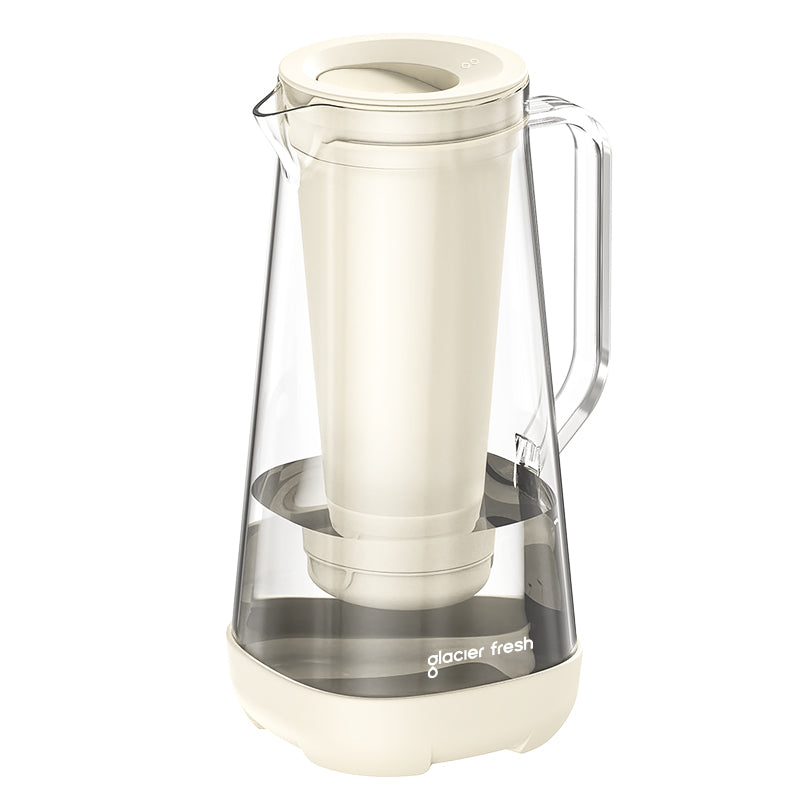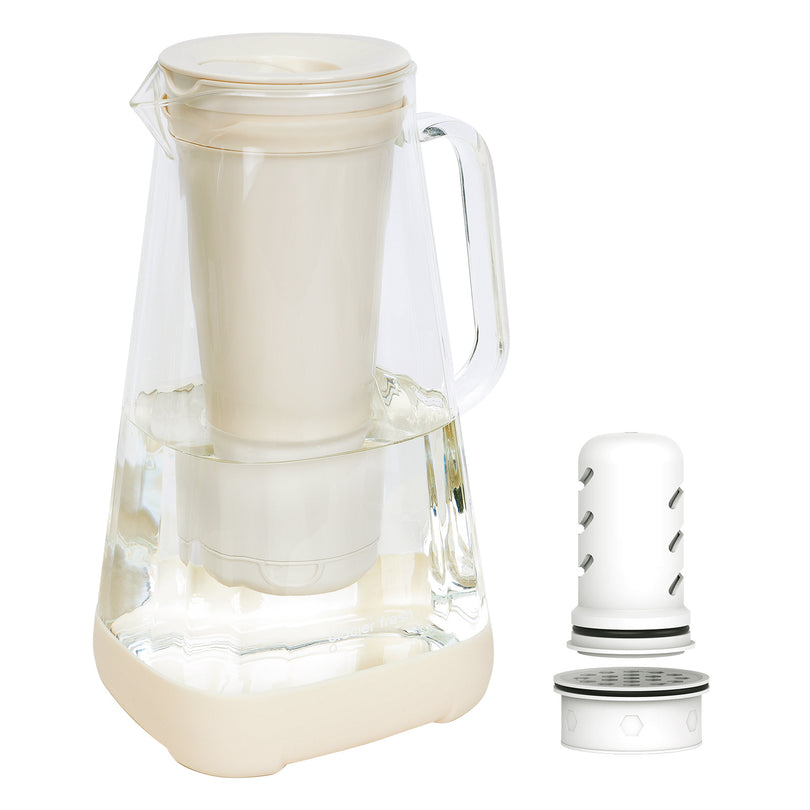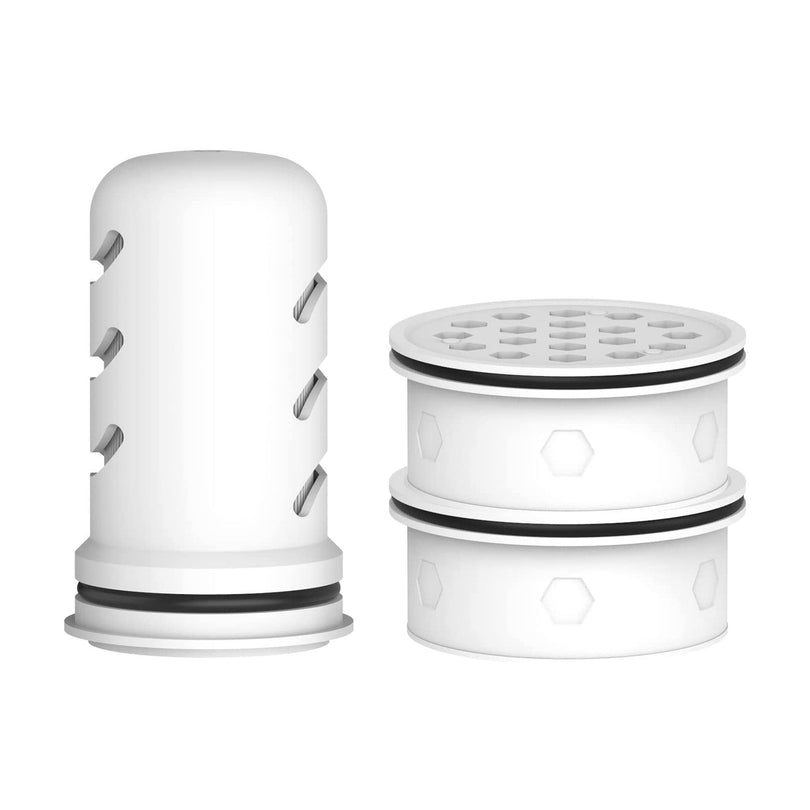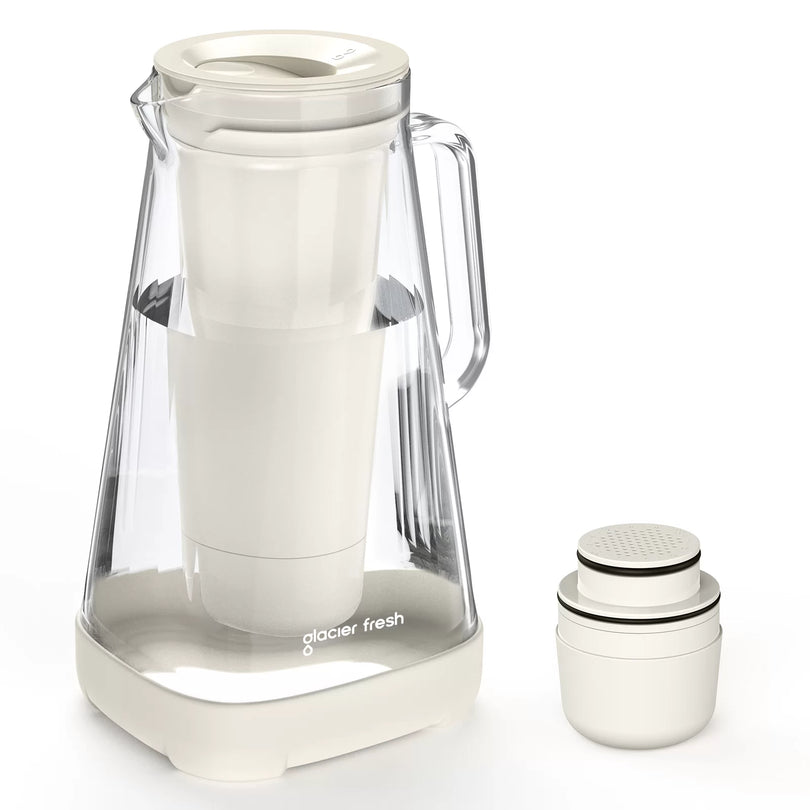Table of Contents:
What Signs Suggest That Your Water Filter Needs Replacement?
3 Crucial Factors That Affect the Lifespan of Your Water Filter
3 Reasons Why Changing Water Filters Is Crucial
Signs to Tell When Water Filter Needs Replacement FAQs
Water filters may do a fantastic job purifying water regularly; however, they need a replacement from time to time. It is essential that you can identify the signs that let you know it’s time to replace.
Not replacing your water filter can result in bacteria and algae building up. Hence, this article will look at some common signs of replacing a water filter.
What Signs Suggest That Your Water Filter Needs Replacement?
Let's look at the most common signs that suggest replacing your water filter immediately.
Indicator light turns on
Modern water filters have an indicator light which is the first sign that your filter needs a replacement. A green light represents that 40 gallons of water have been used. A yellow color indicates that 50 gallons of water have been used. Red light informs that it's time to replace the filter.
Water tastes metallic or emits an unpleasant odor like rotten eggs
The metallic taste of water is caused by the deposition of minerals. This happens when you filter water for an extended period. Mineral content like calcium and magnesium will likely get stored and add an awkward taste to the water. Thus, a metallic taste is a warning sign that you need to replace your filter.
Getting a foul odor from your water can be an unpleasant experience. This can signify your water filter is not working efficiently. Hence, chemicals like chlorine and sulfur are not filtered. You may find a hard time detecting these chemicals, but you should replace the filter.
Decrease in water pressure
Low water supply pressure clearly shows that something is slowing down the water flow. In most cases, you will find this happening due to clogged water filter connections. When you filter large amounts of water over a long period, it is natural to see an accumulation of salt and mineral contents.
These deposits narrow the water pipe, which allows less water to flow through it. Hence, you face a low water flow rate. The best way to get rid of this is to replace the filter.
Black mold in filtered water
Black molds can be a dangerous sign pointing towards fungal growth in your water. This is a serious issue that needs you replace the filter immediately. Black mold is known to affect your respiratory system negatively. It is also recommended to clean your water filter thoroughly to get rid of it and drink healthy water.
Scale buildup due to high TDS
TDS refers to total dissolved solids and should be kept in check while filtering water. A high TDS is usually caused by the deposition of minerals, salts, and other organic matter. This often leads to the building up of scales. This happens due to high deposits of minerals and salts resulting from filtering water for long periods.
Water feels slippery
Slippery water is the primary sign of soft water. Soft water contains a high amount of sodium and potassium ions. The absence of the scummy film makes it slippery. However, if it is soft even after being filtered, your filter is not working correctly. The filtered water is expected to be clear and must feel normal on your skin.
Cloudiness in filtered water
Cloudiness in your filtered water refers to unclear water with a milky texture. It is a sign that your water contains dissolved pollutants that were not filtered. Drinking such water can be hazardous to your health. Such situations need an immediate filter replacement as polluted water signifies that the water filtration systems are not working anymore.
3 Crucial Factors That Affect the Lifespan of Your Water Filters
Once you buy and install a water filter in your home, the work is not over. You still need to bear the maintenance charges and replace the filter if you observe the poor quality of water. Read ahead to find out the factors that affect the life of your water filters.
Type of water filter
There is a wide range of water filters available in the market. Every company claims a certain lifespan of the water filter. However, that may or may not be the same for you if your demands are different.
Water quality of your locality
Even the best water filter fails to function properly if you feed highly contaminated water. The TDS levels in the water supplied to your building also decide how long your water filter will last.
Daily water consumption
The lifespan of a water filter is determined by the gallons of water it can filter before it needs replacement. Whether your family consumes that much water in a week or a month depends on your situation.
3 Reasons Why Changing Water Filters Is Crucial
Cartridge FIlters work on the principle of passing water through porous media. The water percolates through the layers of the filter candle and leaves impurities behind. So, there comes a time when these filter media are saturated and need replacement. Here are the reasons:
Contaminated water
You should be alarmed if you notice a bad taste, odor, or dirty appearance in your tap water, especially the drinking water. Your filters have worn out, and impurities can pass through.
Poor flow rate
If the flow rate of tap water has slowed down, it is a sign of blockage. As water filter cartridges have pores, large dissolved solids can easily block them and resist the passage of water. Thus, you will have to wait longer to fetch the required water.
Water wastage
Cartridge water filters constantly supply clean water but also drain out unfiltered water. So, the lesser the amount of water filtered due to blockage, the higher the amount of drained unfiltered water will be.
Signs to Tell When Water Filter Needs Replacement FAQs
What does red on the water filter mean?
The modern digital water filters have colored light indicators to convey their condition. The red light indicates the need for prompt replacement of filter cartridges. Green and yellow color indicates safe and intermediate lifespan, respectively.
How long do water filters usually last?
2-6 months is the average lifespan of most water filters, but it may vary. The lifespan of your water filter will depend on the type of filter, daily water usage, and impurity levels in the water to be filtered. It is essential to buy the right water filter with the capacity that suits your daily needs.
What happens if the water filter is not changed?
It may lead to 2 consequences: the water flow rate will get slower, or the water might be contaminated again. The former happens due to blockage of filter pores, and the latter is due to the wear and tear of filter media creating larger spaces. Either way, you will suffer.
How long should we run water after changing the filter?
After replacing the old filter candle with the new one, flush the system with water for at least 5 minutes. This practice opens the filter pores that might have some dirt and helps them adjust to the water flow rate of the area. We should also change the refrigerator water filters.
Can using an old water filter make us sick?
Yes, impure water resulting from the inefficient old water filter can make you sick. The high salt levels in untreated hard water, harmful microorganisms, and other dissolved impurities can potentially impact your health negatively. We can use water softeners to treat hard water.





![7 Signs to Tell When You Need to Replace Your Water Filter [The Complete List!]](http://glacierfreshfilter.com/cdn/shop/articles/changing_refrigerator_water_filter_caba189b-afd1-4e3a-8309-de65a83b4eb4.png?v=1656057360&width=1500)


